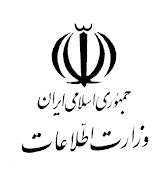
Behrouz Mehri / AFP/Getty Images
The dual U.S. and Iranian citizen has been in Tehran's Evin Prison since January and is charged with espionage.
Roxana Saberi has been in prison since January, accused of spying for U.S. intelligence. A judicial spokesman says she had her day in court Monday and can expect a verdict in the next three weeks.
By Borzou Daragahi
April 15, 2009
Reporting from Beirut -- The trial of an Iranian American journalist facing espionage charges is over and her fate rests in the hands of a judge who will deliver a verdict in the next three weeks, a judiciary official in Tehran told reporters Tuesday.
The spokesman for Iran's judiciary said 31-year-old Roxana Saberi, an American-born dual U.S. and Iranian national, had her day in court Monday.
"Apparently, the court has heard her final defense," spokesman Ali Reza Jamshidi told reporters, according to Iran's Mehr news agency.
Saberi is accused of collecting information from Iranian officials and passing it to U.S. intelligence services, authorities said last week. She and her lawyer, Abdul-Samad Khorramshahi, appeared Monday before a branch of Iran's Revolutionary Court, which tries politically charged crimes.
Iranian lawyers have frequently questioned the due process and transparency afforded defendants at the Revolutionary Court.
Jamshidi said the public and media would not be able to evaluate the evidence.
"Relevant documents exist in the case and the claimants can gain access to it in order to prepare their defense," Mehr quoted him as telling reporters.
Saberi was detained in January after living and working in Iran for six years as a journalist, at least two of them without accreditation. She was confined to Tehran's Evin Prison.
Her parents arrived in Tehran last week. A few days later she was formally charged with espionage, a weighty accusation that could mean years in prison for the Northwestern University graduate and former Miss North Dakota.
In addition to the Iranian contention that Saberi was a covert U.S. operative, analysts have described other possible explanations for the charges:
Journalists' work -- interviewing officials and sending reports -- might resemble espionage. Those monitoring her might have built up a body of circumstantial evidence, such as visits to embassies, ministries and calls to the U.S., that might appear to be spying.
Iran's domestic political scene can be vicious. One faction might be trying to use Saberi to undermine possible rapprochement with the U.S. by another faction.
Iran also might want a bargaining chip to trade for officials who have been arrested and held by the U.S. in Iraq as spies over the last few years.
daragahi@latimes.com
























No comments:
Post a Comment